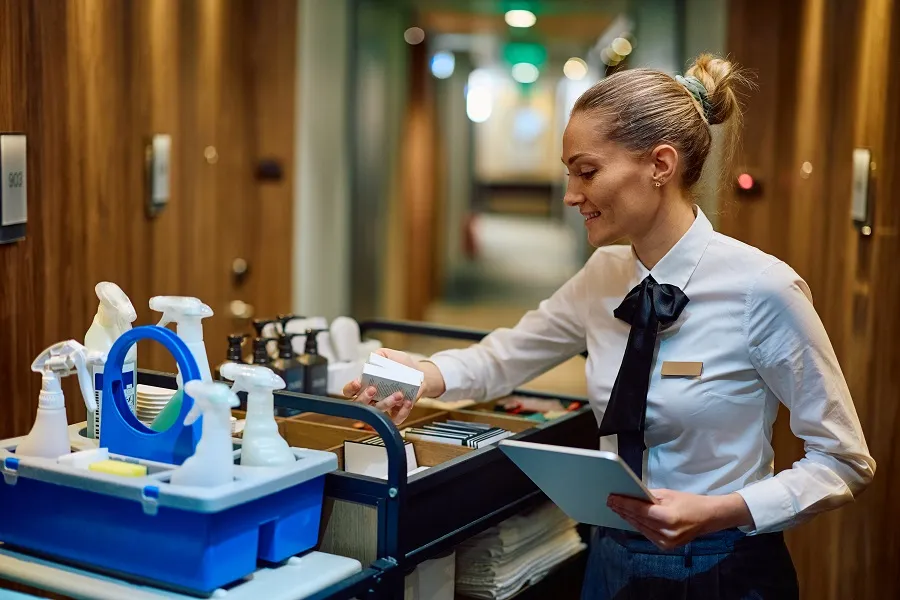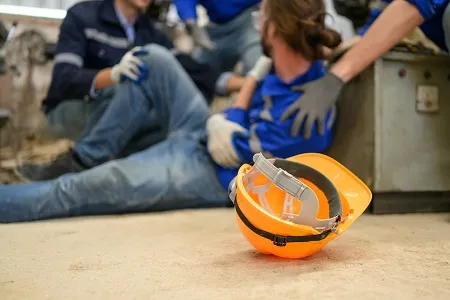Health and Safety Hazards in the Catering and Hospitality Industry
The hospitality industry has quite a diverse workforce as it includes a variety of positions which may or may not demand a high level of education. For instance, cleaning personnel, food delivery personnel, valet, and restaurant servers have different educational requirements from managers and concierge providers. However, each employee reflects the establishment’s culture. This is why everyone needs to be properly trained and inducted.
The hospitality industry in Australia
In Australia, the hospitality industry includes people working in hotels, restaurants, cafes, tour operators, tourist guides, clubs, and those who cater to events. According to Safe Work Australia, 7% of the Australian workforce works in the hospitality industry, 10% of whom are young people. Employees working in the catering and hospitality industry are exposed to such health and safety hazards as:-
- Slips and falls
With so many hazards including water, oil, ice, spilled food and condensation on kitchen floors, it is no surprise that slips and falls are a major concern.
Poor training and enforcement of the right cleaning protocols is the leading cause of slips and falls in hospitality establishments. For instance, if the housekeeping staff are not adequately trained, they could end up using enzyme-based cleaners along with warm water. This proves ineffective in the removal of grease.
You can also minimise the risk of such accidents by signposting slippery areas. Making sure you fix any leaking pipes immediately also minimises the chances of slips and falls. You should train the housekeeping staff on the need to observe good housekeeping practices such as cleaning up spillages as soon as they happen or putting up “wet floor” signposts as soon as they wipe floors. Your hospitality inductions should cover the need to wear enclosed, non-slip shoes.

- Cuts and lacerations
Dicing, peeling and mincing are some of the procedures that take place in most hospitality establishments. The use of knives along with other equipment such as grinders, mixers, slicer, and blenders predispose the staff to cuts and lacerations. Broken glass and dishes are also a cause of concern.
One of the ways through which a hospitality business can minimise the chances of cuts and lacerations is by training employees on best practices and procedures when handling cutting tools. This could include the need to wear cut resistant gloves. Although it sounds counter-intuitive, keeping cutting equipment sharp improves their performance and accuracy. Your hospitality inductions should also emphasise the need to use the right cutting tool for the right task.
- Sprains and strains
The movement and storage of enormous amounts of ingredients is a common element in hospitality establishments. This is normally characterised by lifting, reaching, bending, and carrying these items which predispose the staff to sprains and strains.
These hazards can be dramatically reduced through automation. Rather than requiring cooking personnel to lift 40 pounds of cooking oil, an establishment could invest in dispensing systems. However, a course on suitable manual handling skills cannot be overemphasised in your hospitality induction.
- Burns and scalds
Some of the employees in the hospitality industry have to work under high-heat and high-pressure conditions, predisposing them to burns and scalds. Some of the ways through which staff in a food service establishment can get burned include:-
- Burns from hot steam
- Spilling hot oil or water on the skin
- Contact with hot electrical equipment
- Slipping and falling when carrying hot items
In order to minimise on the chances of burns and scalds your hospitality inductions should also cover such aspects as turning off stoves when they are not in use, handling high-pressure cookers to avoid steam burns, using protective equipment such as forearm protectors, and so on.
- Exposure to hazardous chemicals
This is especially the case when it comes to the housekeeping staff. Heavy-duty cleaning agents may contain hazardous ingredients. Employees need to be trained on the essence of personal protective equipment such as gloves, respirators, and face masks. Apart from training them on how to safely use hazardous cleaning agents, you also need to train them on how to safely store them. This information can be delivered as part of their hospitality induction.
- Accidents during delivery
Food delivery personnel are also predisposed to such safety risks as accidents, crime, and slips and falls. You need to ensure that your delivery personnel are qualified and trained in safe practices while driving. You can prevent crime by implementing a policy that limits the amount of money they carry. As you cannot totally prevent accidents as well as slip and fall accidents have a good insurance policy in place.
How Induct For Work Helps
Hospitality businesses are different from any other as they are characterised by such features as:-
- A diverse workforce
- High staff turnover
- A wide range of policies based on positions, locations, and tasks
- Regular job rotation
- Managing establishments in multiple locations
- Changing regulations on such hazards as fire safety
Induct for Work is an online induction tool that helps to automate processes and procedures associated with induction and onboarding across multiple industries, including the hospitality industry.
The platform automatically enrols any new employees to their hospitality inductions. When the status of any of your staff members changes due to a job promotion or job rotation, they are enrolled in a new course that befits their new position. Apart from allowing your staff access induction programs, continuous training content and webinars on the platform, the platform enables the management to follow up with their teams’ induction training progress. Managers also get updates when staff certificates and licenses are due for renewal. Your staff are more in control of the induction as they can download policies, take the induction course at their own pace and view their training record.
Hospitality Inductions
The hospitality industry is one that involves interaction with contractors. Contractors can upload key documentation such as permits, licenses, and insurance policies on the platform. This ensures that you onboard contractors that are compliant with local regulations as well as your business practices. Through Induct for Work, you can make sure that your contractors will follow safe work procedures, methods, and instructions.
If you employ staff in any capacity in a hospitality establishment, you need to keep them safe as well as stay compliant. Register today for a free trial.
Do you have any questions or great tips to share?
Induct for Work – the only online induction system you would need to run online inductions.



